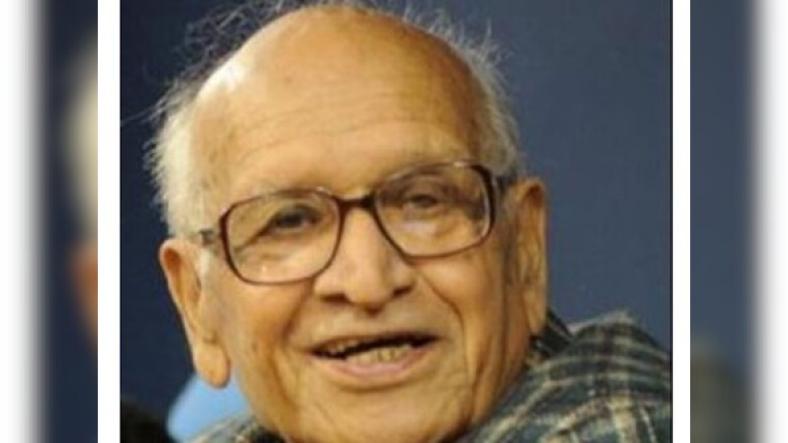Bipan Chandra was a prominent Indian historian, scholar and author, renowned for his expertise on modern Indian history and the Indian independence movement. He is widely recognized for his extensive research, writings and analyses on colonialism, nationalism and the socio-political developments of modern India.
1. Early Life and Education
- Bipan Chandra was born on May 24, 1928, in Kangra, Punjab (now in Himachal Pradesh), British India.
- He pursued his higher education at Forman Christian College in Lahore and later at the University of Delhi, where he completed his M.A. in history.
- He obtained a Ph.D. from the University of Delhi, specializing in modern Indian history.
- His academic journey laid the groundwork for his later contributions to Indian historiography.
2. Academic Career
- Bipan Chandra began his teaching career as a lecturer at Hindu College, University of Delhi and later joined Jawaharlal Nehru University (JNU).
- He served as a professor of modern history at JNU and played a crucial role in developing the Centre for Historical Studies at the university.
- Under his leadership, JNU emerged as a prominent center for historical research and progressive thought.
- Over the years, he mentored numerous students who went on to become notable historians and scholars.
3. Contributions to Indian Historiography
- Specialization in Economic Nationalism and Colonialism:
- Bipan Chandra’s work largely focused on economic nationalism, the economic policies of British colonialism and how they impacted India’s development.
- His early research concentrated on the economic exploitation of India under British rule and the effects of colonial policies on Indian industries and society.
- Interpretation of Indian National Movement:
- Chandra is particularly known for his Marxist perspective on the Indian independence movement, viewing it through the lens of class struggle, nationalism and anti-colonialism.
- He argued that the Indian National Congress, while a bourgeois party, played a progressive role in uniting various social classes in the struggle against British rule.
- Historical Analysis of Communalism:
- His work also delved into the origins and growth of communalism in India.
- Chandra argued that communalism was a colonial construct used to divide Indian society and undermine the independence movement.
- He saw communalism as a major impediment to India’s socio-political progress.
4. Notable Works
- "The Rise and Growth of Economic Nationalism in India": One of his earliest works, this book explores the economic dimensions of the Indian nationalist movement and the impact of colonial economic policies on India.
- "India's Struggle for Independence" (1988):
- Co-authored with other historians, this book is one of the most widely read texts on India’s freedom struggle.
- It provides an in-depth account of the independence movement, from the Revolt of 1857 to India's independence in 1947.
- "History of Modern India":
- This book is a seminal text on Indian modern history and provides a comprehensive analysis of colonialism, socio-economic changes and the freedom movement.
- It is widely used by students preparing for competitive exams in India.
- "Communalism in Modern India": In this book, Chandra examines the roots of communalism in India and its growth as a divisive force in Indian society.
- "In the Name of Democracy: The JP Movement and the Emergency": This book critically assesses the political and social events that led to the Emergency in India (1975-1977) and the role of Jayaprakash Narayan's movement.
5. Ideological Perspective
- Bipan Chandra was associated with the Marxist school of historiography, although he avoided rigid ideological interpretations.
- His writings emphasize socio-economic structures and class analysis as key to understanding the historical processes of modern India.
- He is often considered a part of the "Aligarh school" or "Cambridge school" of Indian historians, which emphasizes social and economic factors over individual heroes in the narrative of the freedom struggle.
- Despite criticisms from certain quarters, especially from right-wing ideologies, Chandra’s approach to history remains influential and widely respected in academic circles.
6. Role in Institutions
- Chairperson of the National Book Trust (NBT): Bipan Chandra served as the chairman of the National Book Trust, India, where he promoted the publication of accessible historical texts for the general public.
- Member of the Indian Council of Historical Research (ICHR): Chandra contributed to research and policymaking in Indian historical research as a member of the ICHR.
- He played a significant role in promoting an understanding of Indian history that was based on rigorous research and scientific inquiry and he opposed communal interpretations of history.
7. Legacy and Influence
- Bipan Chandra's work continues to shape the study of modern Indian history.
- His books are widely read by students, scholars and those preparing for competitive examinations, making his interpretations of the independence movement mainstream in India.
- He is respected for his scholarly rigor and dedication to secular and progressive values and his influence is seen in the historical and academic narratives of the Indian freedom struggle.
- Chandra’s approach to history aimed to create a sense of national unity and secularism, grounded in historical analysis and devoid of communal bias.
8. Death
- Bipan Chandra passed away on August 30, 2014, at the age of 86, leaving behind a vast legacy of scholarly work.
- His contributions to modern Indian history are commemorated by students, historians and intellectuals in India and abroad.
9. Criticism and Controversy
- Some of Chandra’s works have been criticized for having a Marxist bias and his views on the role of certain freedom fighters, particularly those from right-wing ideologies, have been contested by other historians and political groups.
- Nevertheless, Chandra’s commitment to academic rigor and secularism has made him a respected figure in Indian historiography, despite these controversies.
Bipan Chandra was a distinguished historian who reshaped modern Indian historiography. His works on colonialism, nationalism and communalism are essential resources for understanding India’s freedom struggle and its socio-political challenges. His commitment to secularism and progressive thought, as well as his emphasis on rigorous historical analysis, have left an enduring legacy in Indian academia.
Google Ad 1
Thanks for reading the article, for more great peoples related articles read our peoples blog articles.










